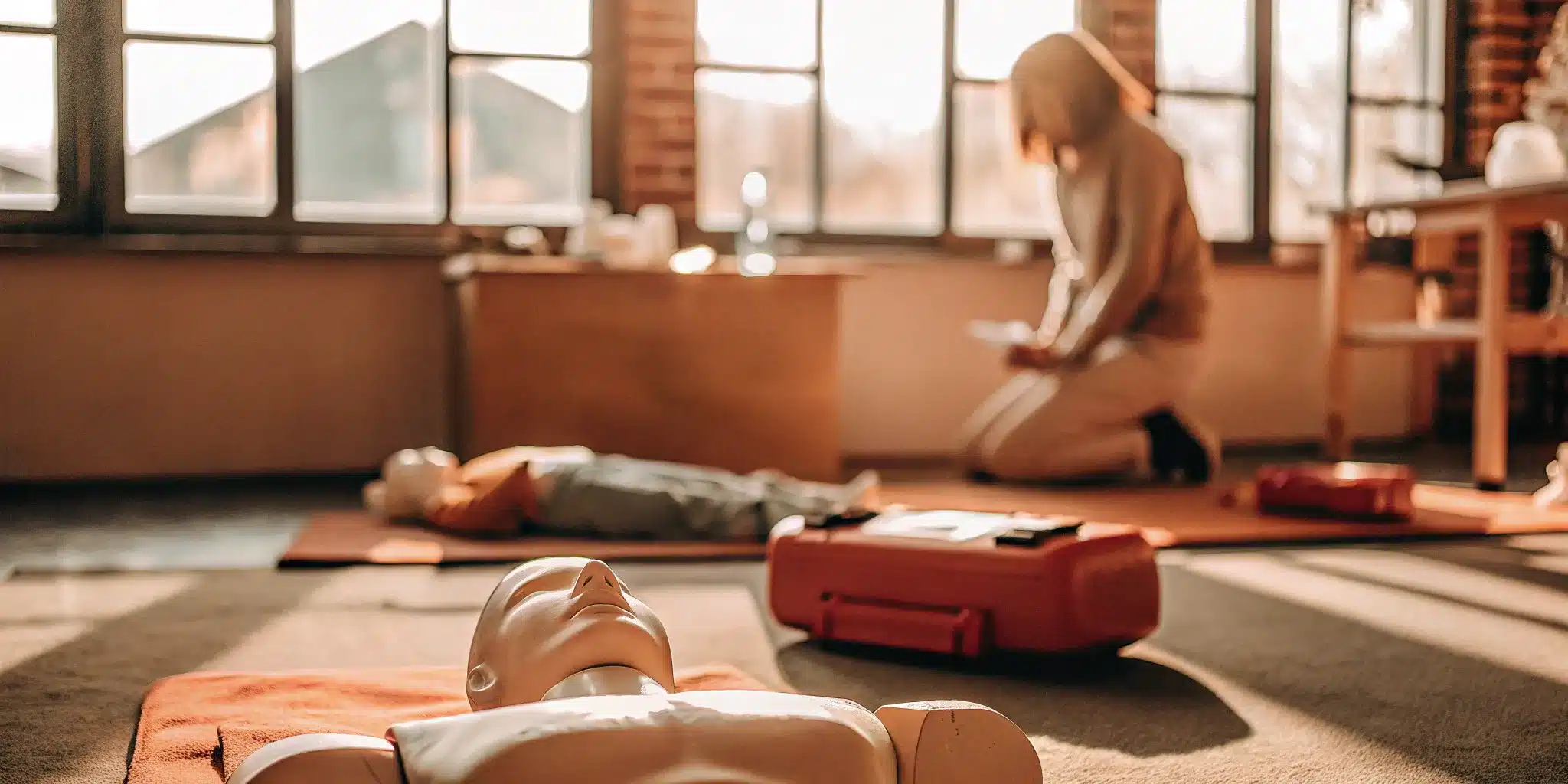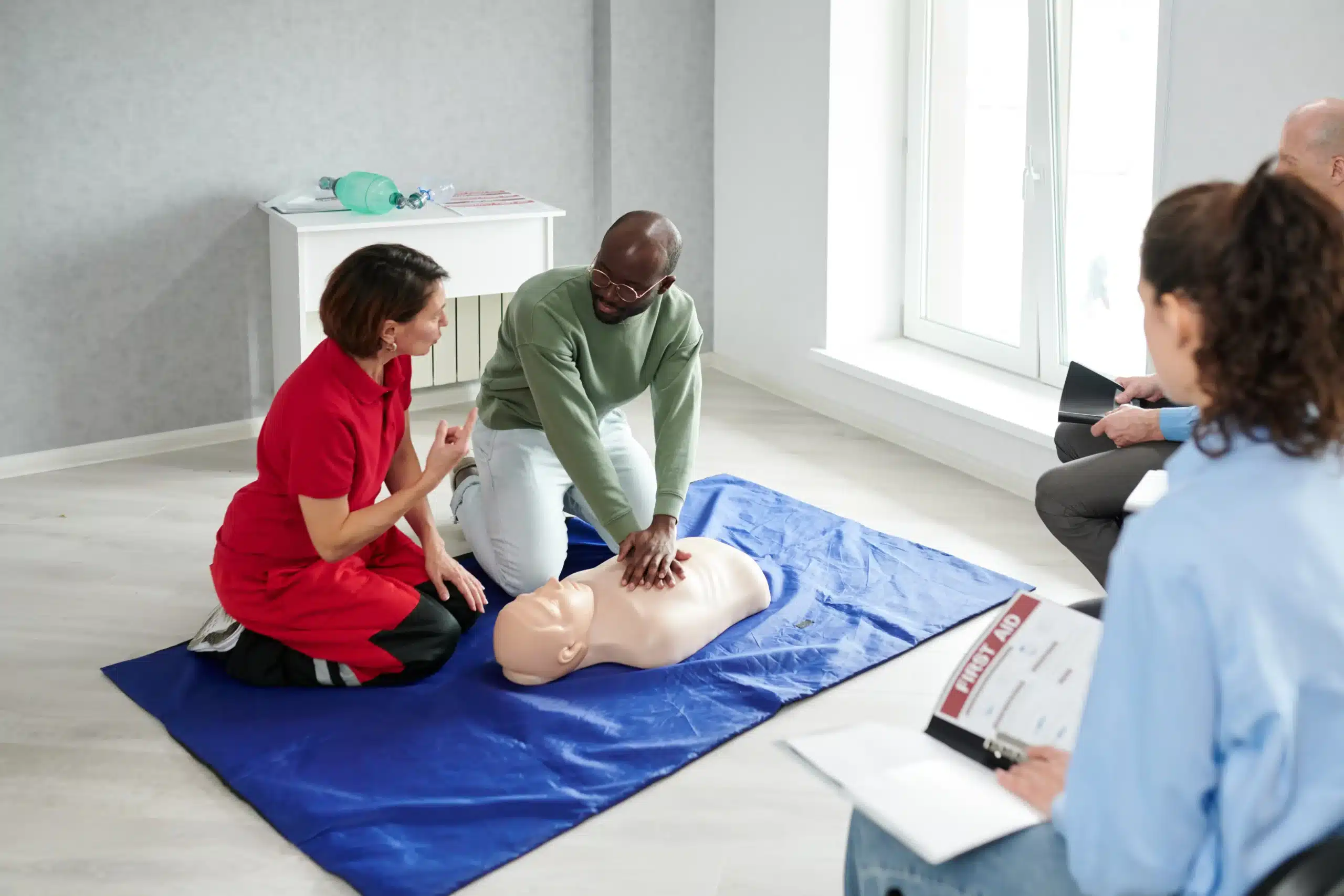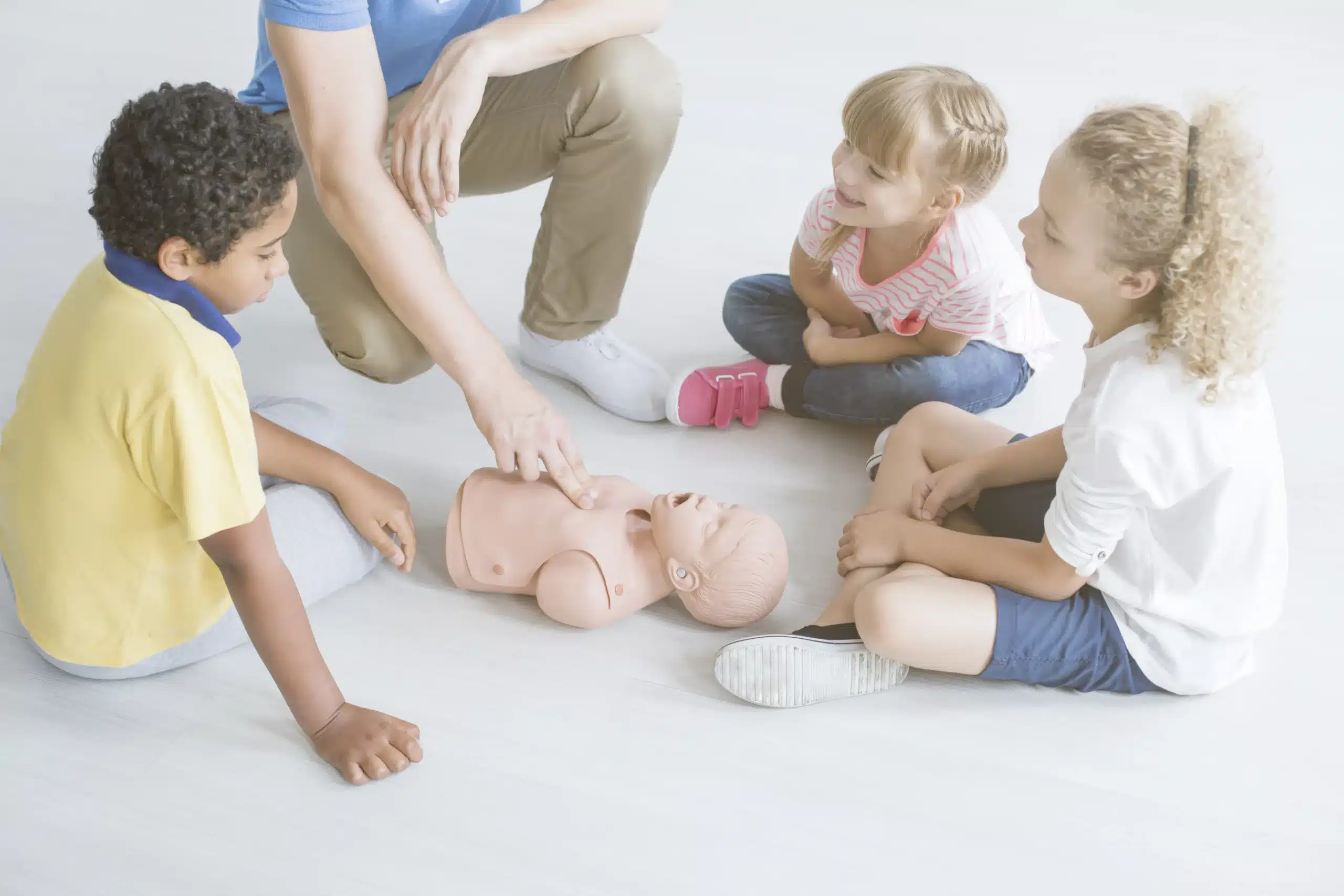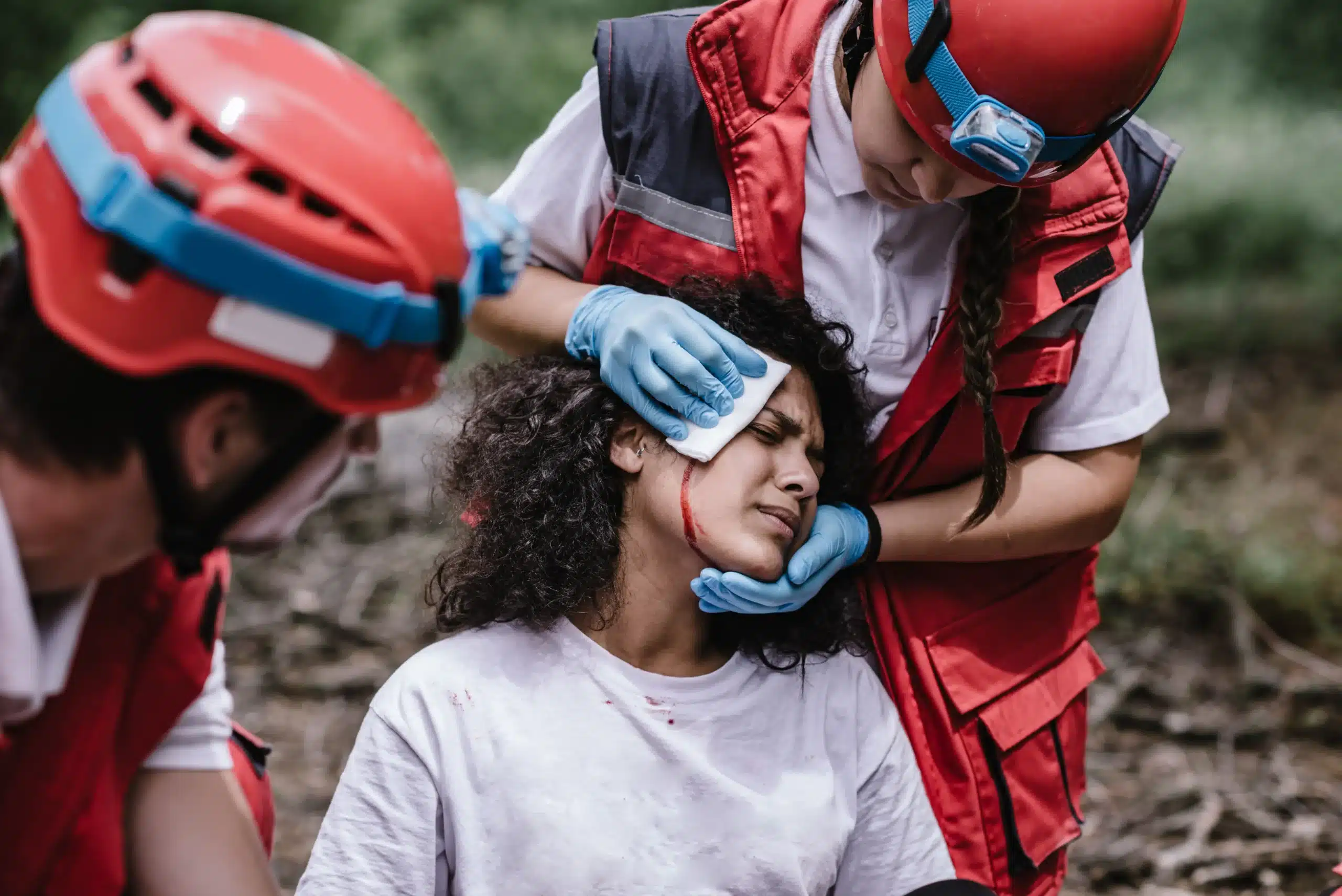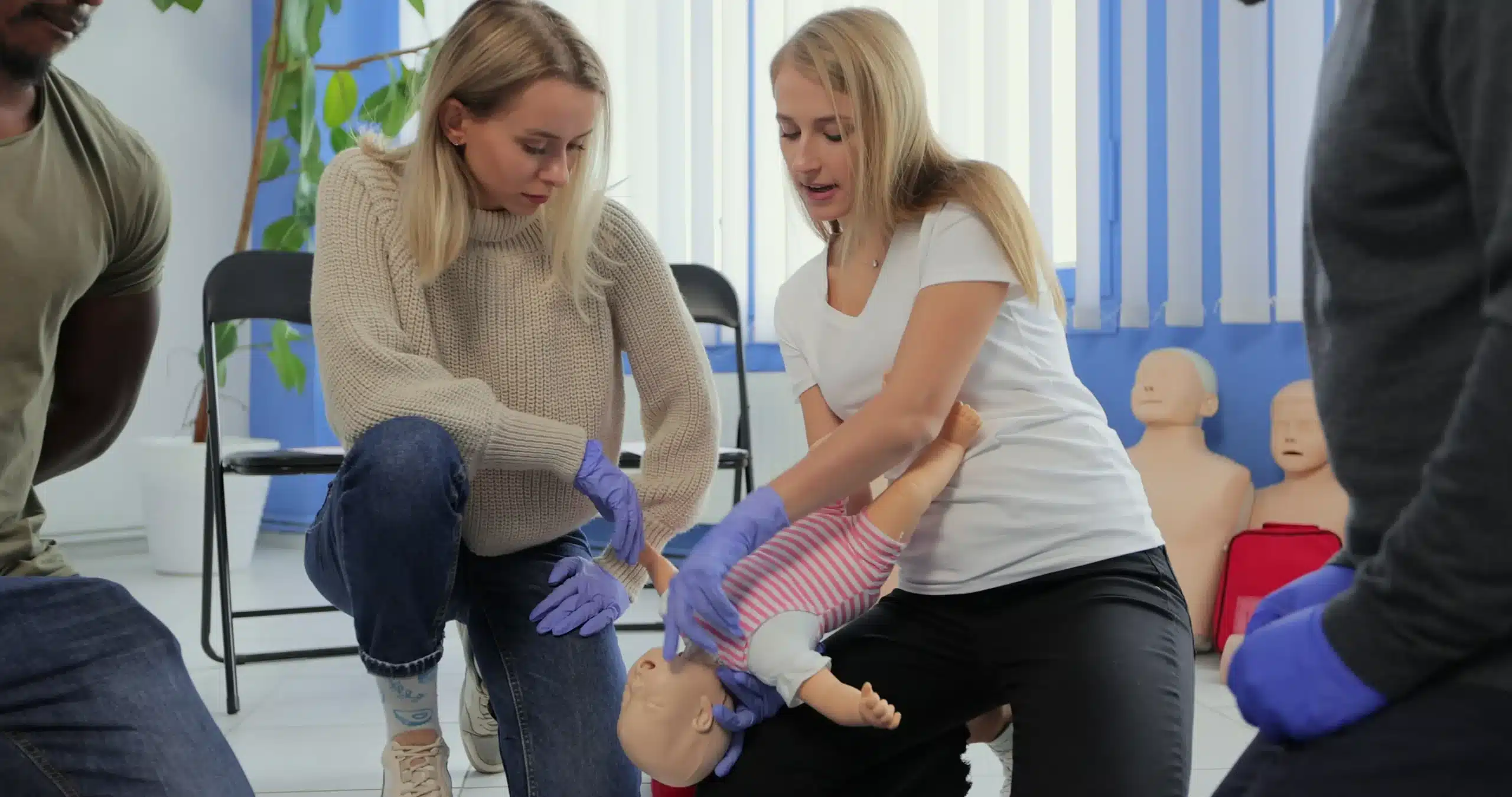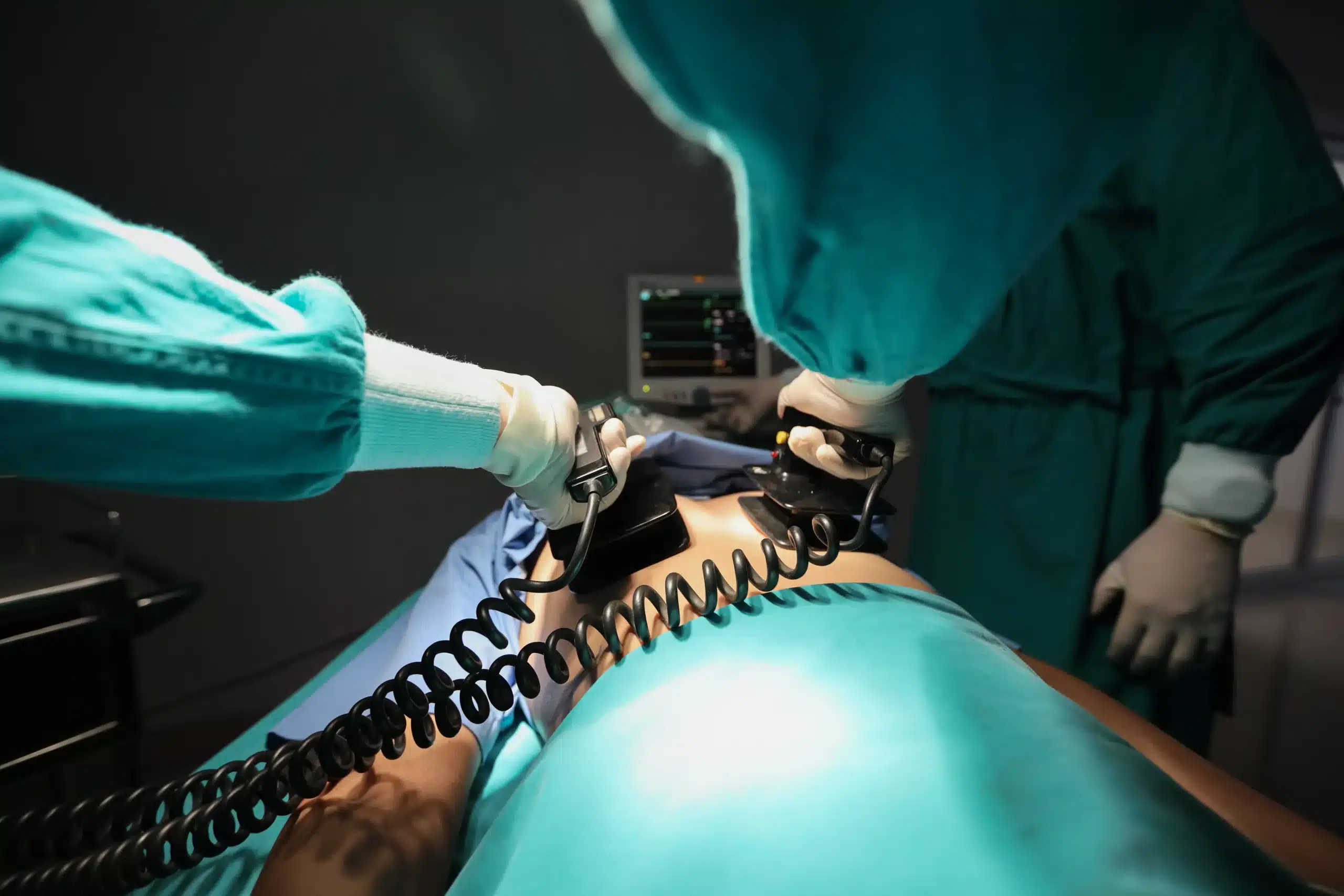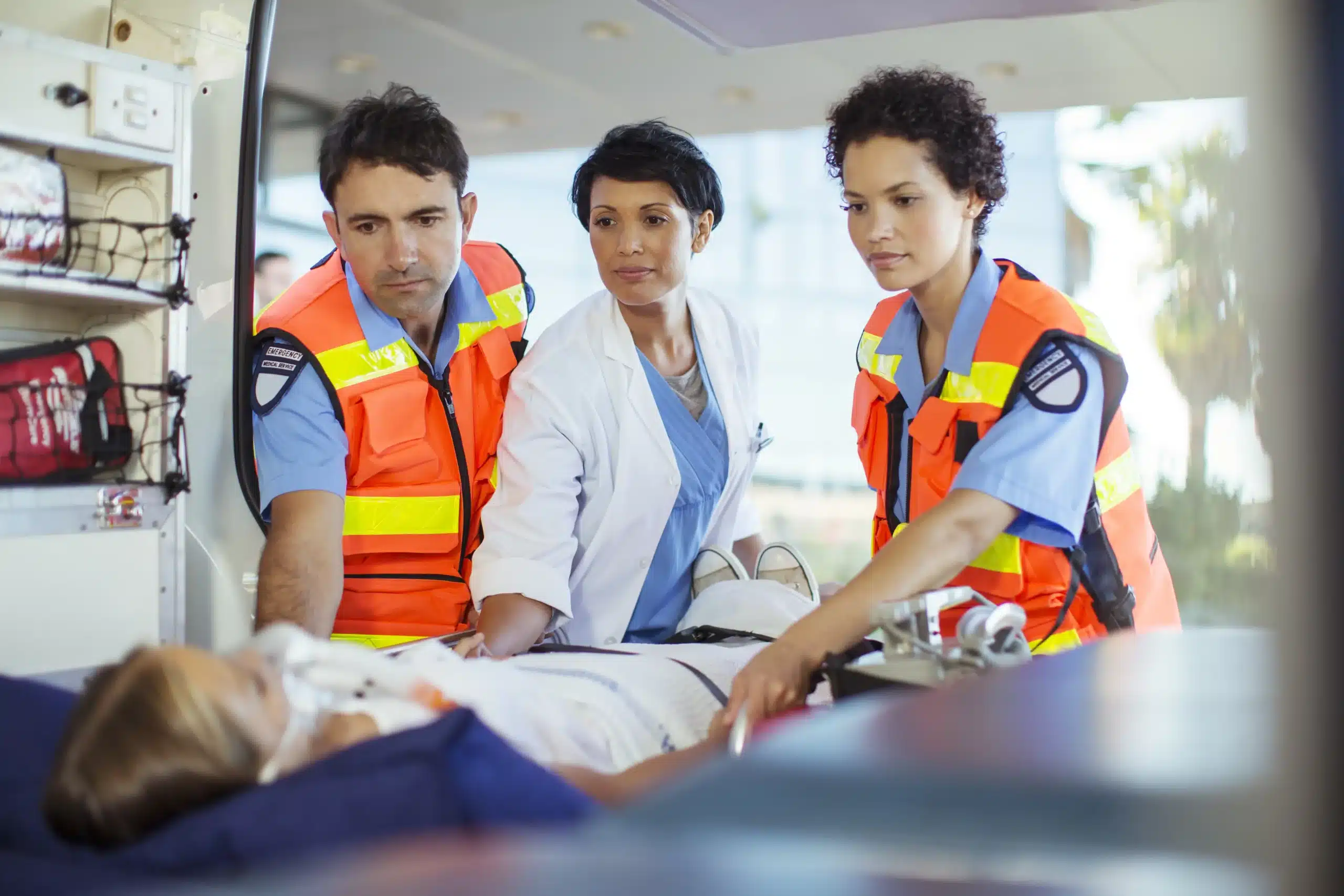In Mountain House, being prepared for medical emergencies can make all the difference. Knowing how to perform CPR, use an AED, and provide basic life support can be truly life-saving. This guide is your go-to resource for finding BLS courses in Mountain House. We’ll walk you through the process of choosing the right course, understanding the costs, and finding qualified instructors. Whether you’re looking to advance your healthcare career, enhance your workplace safety measures, or simply gain valuable life skills, this guide will provide you with the information you need to get BLS certified.
Key Takeaways
- BLS skills empower you in emergencies: Whether you’re a healthcare provider, a parent, or a concerned citizen, BLS training equips you to respond effectively to medical crises, potentially saving lives. Find a course that fits your lifestyle and learning preferences.
- Select the right BLS course: Consider instructor expertise, course format (in-person, blended, or online), and cost when choosing a program. Look for certified instructors with real-world experience and clear teaching styles. Compare local providers like Safety Training Seminars and explore available discounts.
- Stay current with your certification: BLS certification typically requires renewal every two years. Maintain your skills and confidence by taking a recertification course before it expires. This ensures you’re always prepared to provide effective assistance when needed.
What is BLS?
Basic Life Support (BLS) is a crucial set of lifesaving skills for healthcare providers and first responders. It covers core techniques like CPR, using an AED (automated external defibrillator), and handling choking emergencies. BLS training gives you the knowledge and ability to respond effectively in crises, providing immediate care until more advanced medical help arrives. It’s the foundation for responding to medical emergencies.
BLS certification is valid for two years, according to the American Red Cross. Keeping your skills sharp is important, and recertification courses help you stay up-to-date on the latest guidelines and techniques. These courses cover various scenarios, from single-responder to team situations, making BLS training valuable for professionals in healthcare, emergency services, and other fields.
BLS goes beyond just CPR. It includes advanced methods for managing breathing difficulties and other medical emergencies, making it a vital skill set for anyone involved in patient care or emergency response. The Red Cross offers a helpful comparison to understand the differences between BLS and CPR certification. Having these skills can make a real difference.
Why BLS Certification Matters in Mountain House
BLS certification is more than just a credential—it’s a vital skill that empowers you to respond effectively during medical emergencies. In a close-knit community like Mountain House, where neighbors look out for one another, having residents trained in BLS can make a significant difference, strengthening community safety and providing peace of mind.
BLS certification equips you with the skills to perform CPR, use an AED, and provide basic life support until professional medical help arrives. These skills are invaluable in any setting, from homes and workplaces to community events. Should a medical crisis occur, your training can help stabilize a person experiencing cardiac arrest, stroke, or choking. This immediate intervention can dramatically improve outcomes. Learn more about the importance of BLS.
Beyond personal preparedness, BLS certification can open doors to various career opportunities. Many healthcare roles require this certification. Even in fields like education, hospitality, and fitness, this certification can enhance your resume and improve your job prospects. For businesses in Mountain House, having BLS-certified employees demonstrates a commitment to workplace safety. BLS certification can also be a stepping stone to advanced certifications like ACLS and PALS, further expanding your career options.
Find BLS Courses in Mountain House
Finding the right BLS course in Mountain House depends on your learning style, schedule, and budget. Luckily, several options are available, from traditional in-person classes to online and blended learning formats. Here’s a breakdown to help you find the perfect fit:
In-Person Training
For those who thrive in a hands-on environment, in-person BLS training offers a valuable interactive experience. The French Camp McKinley Fire District offers free American Heart Association Basic Life Support (CPR) courses to Mountain House residents. These courses cover core skills like adult, child, and infant CPR, along with AED use and rescue breathing.
Online & Blended Learning
If you need more flexibility, online and blended learning might be a better fit. The American Red Cross offers BLS certification courses in a blended format, combining online coursework with in-person skills sessions. This allows you to learn at your own pace while still getting the hands-on practice you need. They also offer fully online and in-person training.
Local Providers
Here are a few local providers offering BLS training in and around Mountain House:
Safety Training Seminars
Safety Training Seminars provides a range of American Heart Association courses, including CPR, BLS, ACLS, and PALS. Their courses are designed to be convenient and affordable. Check their website for course schedules and pricing.
French Camp McKinley Fire District
In addition to their free CPR courses, the French Camp McKinley Fire District provides comprehensive training, including team CPR and assisting someone who is choking. Learn more about their programs.
In-Home CPR
For a more personalized experience, In-Home CPR offers first aid and CPR certification at your home or business. Their instructors are all EMTs, RNs, or Paramedics and can tailor the training to your specific needs.
American Red Cross
The American Red Cross provides convenient digital certificates upon completion of their BLS certification. This can be especially helpful if you need to verify your certification.
What Happens in a BLS Course?
This section covers what you can expect during a BLS course, from the structure and duration to the essential skills you’ll learn and the certification process.
Course Structure & Duration
BLS courses are designed to give you the knowledge and skills to respond effectively in medical emergencies. These courses typically blend classroom learning with hands-on practice, led by a certified instructor. A BLS course takes about four to five hours if completed in person. Blended learning is another option, combining about one to two hours of online coursework with a shorter in-person skills session of two to three hours. These courses meet national standards and are taught by certified experts. The American Red Cross offers more information on their BLS Certification courses.
Essential Skills
BLS courses cover a range of life-saving techniques. You’ll learn CPR for adults, children, and infants, practicing both single-rescuer and team-based techniques. The curriculum also includes training on using an AED and how to help someone who is choking. These skills are crucial for responding to various medical emergencies, from cardiac arrest to difficulty breathing.
Exams & Certification
After completing the course and passing the required exams, you’ll receive your BLS certification, usually valid for two years. The American Red Cross provides digital certificates that you can access, print, and share online. These certificates include a unique ID and QR code for easy verification, which many employers require. You can take a recertification course after two years to keep your skills sharp and maintain your certification.
BLS Course Costs in Mountain House
Understanding the cost of BLS certification is an important part of choosing the right course. Several factors influence pricing, so let’s break down what you can expect.
Typical Prices
BLS course fees depend on several things, including whether you choose an in-person or online course, and your location. Generally, online BLS courses tend to be more affordable than in-person classes. As eMedCert explains, the format you choose plays a significant role in the overall BLS certification cost. In-person training often includes additional costs, like equipment and facility fees. It’s a good idea to check with various providers in Mountain House, like Safety Training Seminars (link to relevant page on Safety Training Seminars website if available, otherwise link to homepage: https://livermorecprclasses.com), to compare pricing and find the best fit for your budget. You can also explore options in nearby cities like Livermore and Dublin, as prices may vary.
Discounts & Offers
Many training centers offer discounts, which can help make BLS certification more accessible. Keep an eye out for special promotions. For example, some providers offer discounts for military personnel. You might also find bundled deals, combining courses like BLS with ACLS or PALS. Check with your employer or professional organization, too, as they may have partnerships with training providers that offer discounted rates. Be sure to ask Safety Training Seminars about any current discounts they offer for their group classes.
Included Fees
When comparing prices, make sure you understand what’s included in the course fee. Typically, the cost covers things like administrative expenses, registering your certification, and issuing your CPR card. Some courses, especially those geared towards childcare providers in California, also include EMSA-approved certification. Clarifying these details upfront will help you accurately assess the total cost and avoid any surprises. Don’t hesitate to ask providers, like Safety Training Seminars, about any additional fees, such as for replacement cards or study materials. You can find their contact information on their website.
Instructor Expertise & Qualifications
When your health is on the line, you want to know you’re in good hands. Choosing a BLS course with qualified instructors is just as important as the course content itself. Here’s what to look for:
Required Certifications
Top-notch BLS instructors hold certifications from nationally recognized organizations like the American Heart Association or the American Red Cross. The American Heart Association requires all instructor candidates to complete the BLS Instructor Essentials course, covering the latest guidelines and teaching methods. This ensures instructors stay up-to-date with best practices. Similarly, the Red Cross emphasizes preparation with their Basic Life Support Instructor’s Manual as a foundation before the instructor course.
Healthcare Background
A strong healthcare background is a major plus. Someone with real-world experience brings a depth of understanding that goes beyond the textbook. SureFire CPR notes that a healthcare professional’s BLS skills are directly tied to the quality of their training, highlighting the importance of experienced instructors. Many BLS instructor courses, like those described by ACLS Now, include modules designed to build on existing healthcare knowledge.
Teaching Abilities
Beyond certifications and experience, effective teaching is key. A great BLS instructor clearly explains complex concepts, demonstrates techniques, and provides constructive feedback. SureFire CPR emphasizes the importance of interactive training, where instructors and students communicate openly, creating a comfortable learning environment. The American Heart Association also expects instructors to be proficient in administering skills tests and using checklists, ensuring students can confidently apply their new knowledge.
Choose the Right BLS Course
Choosing the right BLS course is a crucial step towards gaining the skills and confidence to respond effectively in medical emergencies. With various options available, it’s essential to consider your learning style, schedule, and budget to find the perfect fit.
Factors to Consider
Several key factors can influence your decision when selecting a BLS course:
- Course Format and Flexibility: Do you prefer traditional in-person classes, the convenience of online learning, or a blended approach? Consider your learning style and how much flexibility you need regarding scheduling. The American Red Cross, for example, offers different learning formats for their CPR courses, including in-person, online, and blended learning. This allows participants to choose a format that best suits their needs.
- Instructor Qualifications: The quality of instruction significantly impacts your learning experience. Look for courses led by certified instructors with a strong background in healthcare and proven teaching abilities. Resources on becoming a BLS instructor highlight the essential training modules required for effective instruction.
- Certification Validity: Ensure the course you choose provides a certification recognized by your employer or professional organization. Confirm the certification’s validity period, as most BLS certifications require renewal after two years.
Compare Options
Once you’ve identified your priorities, compare different BLS course options:
- Local Providers: Check for training centers and community organizations offering BLS courses in your area. Local providers, like Safety Training Seminars, may offer convenient training options for residents of Mountain House. Consider factors like location, schedule, and class size when making your decision. Reach out to local fire departments or community centers for potential courses.
- Cost and Discounts: BLS course costs can vary. Inquire about potential discounts for groups, students, or organizations. Some providers offer flexible on-site training that can help manage costs effectively.
- Group Discounts: If you’re coordinating training for a group, explore providers offering group discounts. This can be a cost-effective solution for workplaces or community groups. Contact providers directly to discuss group rates and tailor the training to your specific needs. Always Safe and Healthy is one example of a provider that offers this type of discount.
Career Paths with BLS Certification
BLS certification opens doors to various career paths, especially in fields requiring a commitment to safety and well-being. Whether you’re pursuing a career in healthcare, emergency services, or aiming to enhance workplace safety, BLS training provides a valuable foundation.
Healthcare
In healthcare, BLS certification is often a non-negotiable requirement. From registered nurses and physicians to certified nursing assistants and medical assistants, many roles mandate this training. BLS ensures that healthcare providers can respond effectively to cardiac arrest and other emergencies, creating a safer environment for both patients and colleagues. For those considering a career in healthcare, obtaining BLS certification demonstrates your preparedness and commitment to patient care.
Emergency Services
Emergency responders are on the front lines of critical situations, and BLS certification is fundamental to their work. Emergency medical technicians (EMTs) and paramedics rely on their BLS skills to provide immediate care during medical crises, accidents, and natural disasters. BLS training equips them to assess a patient’s condition, perform CPR, use an AED, and provide other life-saving interventions. If a career in emergency services appeals to you, BLS certification is a crucial first step. Consider exploring career options with a BLS certification.
Workplace Safety
BLS certification isn’t limited to healthcare and emergency services. Many other professions benefit from having employees trained in these life-saving techniques. Lifeguards, security guards, teachers, childcare providers, and even those in the hospitality industry can use BLS skills to respond effectively to emergencies in their respective workplaces. Having trained personnel on-site can significantly improve workplace safety and provide peace of mind for both employees and customers. Consider group discounts for BLS training at your workplace.
Maintain Your BLS Certification
Keeping your BLS skills sharp is crucial for providing effective care in emergencies. This section covers how long your certification lasts and how to renew it.
How Long is it Valid?
BLS certification, like CPR certification, is typically valid for two years. It’s essential to keep track of your expiration date. Check your card regularly and make a note of when you’ll need to recertify. Staying current with the latest guidelines and practices ensures you’re prepared to deliver the best possible care when needed. For more details on BLS certification, visit the American Red Cross website.
Renew Your Certification
Before your certification expires, sign up for a BLS recertification course. These courses are designed as refreshers, covering core BLS skills and any updated guidelines. Recertification ensures your skills are up-to-date and you’re confident responding effectively. If your certification has lapsed, you might still be able to recertify within a short grace period. Check with your certifying organization or a training provider like Safety Training Seminars for their policy. The Red Cross clarifies the distinctions between BLS and CPR certification, both requiring renewal every two years. Contacting Safety Training Seminars directly can provide information on local recertification courses.
Get BLS Certified in Mountain House
Ready to get your BLS certification in Mountain House? It’s easier than you think. This final section will walk you through the process, whether you’re a healthcare provider, a concerned parent, or simply someone who wants to be prepared. Having BLS skills can make a real difference.
First, think about what kind of learning environment works best for you. Do you prefer a classroom setting with hands-on practice, or would you rather have the flexibility of online learning? Consider your schedule and learning style.
Next, explore different BLS providers in Mountain House. We’ve highlighted several options in this guide, including local fire districts, organizations like the American Red Cross, and companies like In-Home CPR. Check their websites or contact them directly to learn about courses, schedules, and costs. If you’d like personalized training, In-Home CPR brings the training to your location.
Registration is usually simple, either online or by phone. Ask about prerequisites, materials, and payment options. The French Camp McKinley Fire District offers free BLS courses to community members.
After you finish your course, you’ll receive a BLS certification card, usually valid for two years. Keep track of the expiration date and renew it to maintain your skills. The American Red Cross website has information on renewing your certification. A BLS course is an investment in yourself and your community, empowering you to respond confidently during emergencies.
Related Articles
- CPR Certification in Livermore: Your Complete Guide – Livermore CPR Classes
- BLS CPR Courses in Livermore, CA – Livermore CPR Classes
- American Heart Association Courses – Livermore CPR Classes
- First-Aid Training Classes in Livermore – Livermore CPR Classes
Frequently Asked Questions
How is BLS different from standard CPR?
BLS builds upon the foundation of CPR. While CPR focuses on chest compressions, rescue breaths, and AED use, BLS incorporates more advanced airway management techniques and other procedures for handling various medical emergencies. It’s designed for healthcare providers and first responders, giving them a broader skillset to stabilize patients until advanced medical help arrives.
What if I don’t work in healthcare? Is BLS training still relevant for me?
Absolutely! While BLS is essential for healthcare professionals, it’s valuable for anyone. Knowing how to respond to medical emergencies like choking, cardiac arrest, or strokes can make a difference in any setting, from your home to your workplace or even out in the community. Plus, having BLS certification can enhance your resume and open up job opportunities in various fields.
Are there online BLS courses available in Mountain House?
Yes, you can find online and blended learning options for BLS certification. Blended learning combines online coursework with a shorter in-person skills session, offering flexibility while still providing hands-on training. Fully online courses are also available, allowing you to learn at your own pace. Check with providers like the American Red Cross and Safety Training Seminars for available formats.
How much does a BLS course cost, and are there any discounts?
BLS course costs vary depending on the training provider, course format (online or in-person), and your location. Many providers offer discounts for groups, students, or military personnel. It’s always a good idea to contact providers directly, like Safety Training Seminars, and ask about current discounts or special offers. They may have package deals that combine BLS with other certifications like ACLS or PALS.
How do I choose the right BLS course in Mountain House?
Consider your learning style and schedule when choosing a course. Do you prefer in-person instruction or the flexibility of online learning? Also, research the instructor’s qualifications and experience. Look for certifications from reputable organizations like the American Heart Association or the American Red Cross. Finally, compare costs and check for any available discounts. Reading reviews and comparing course content can also help you make an informed decision.
